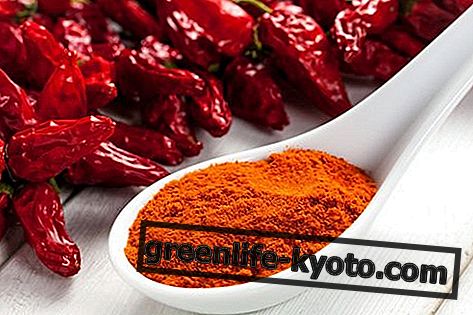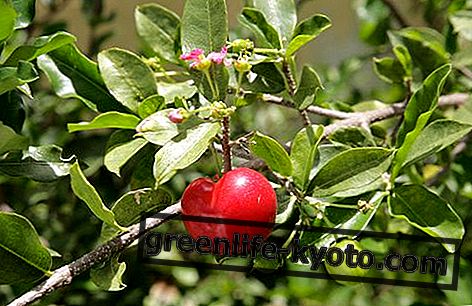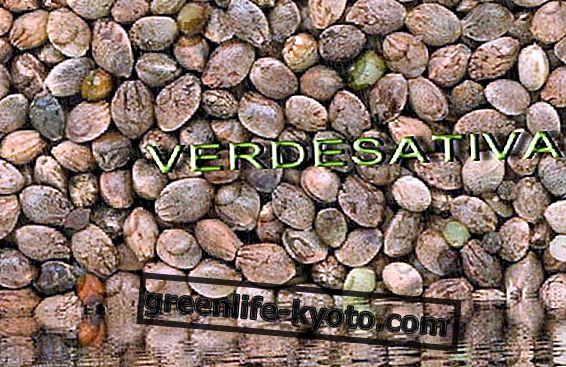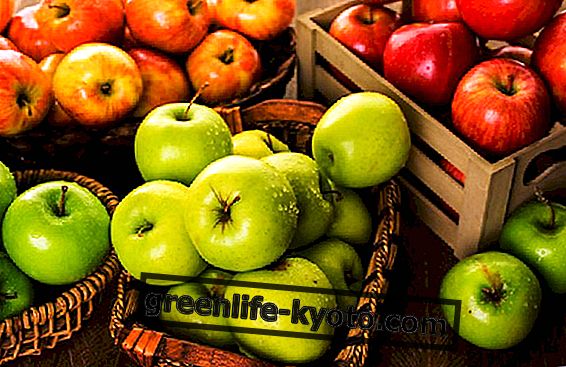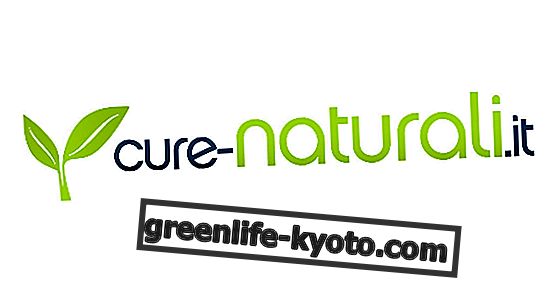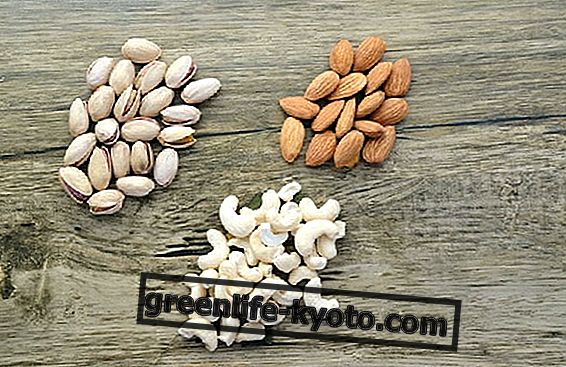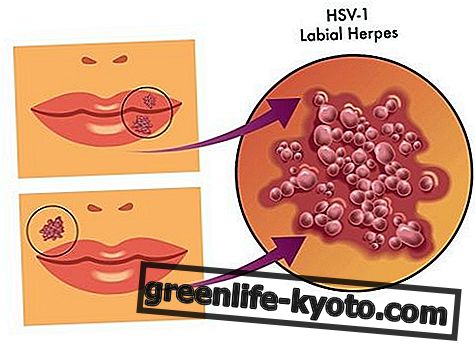
The mango is a tropical tree native to India and known by the botanical name of Mangifera indica of the Anacardiaceae family.
Its size can reach over 20 meters, its fruit has an ovoid, elongated shape, with a thin skin of colors ranging from green to red, from yellow to orange.
The mango pulp is firm even though there are some softer and creamier varieties.
The color of the flesh varies from yellow to orange and its smell is unmistakable, intense and attractive, while its taste is full and sweet.
There are many varieties of mango that differ in shape, size, flavor, color of fruit and pulp.
India is the main producer in the world and the most cultivated and commercialized varieties are Kent, Tommy Athins, Keitt and Haden.
Mango composition
The fresh fruit of the mango is composed for 3/4 of water, its pulp contains many nutrients including essential fatty acids, vitamins, mineral salts, amino acids and sugars such as fructose, glucose and sucrose.
Finally, in mango we find many molecules and active ingredients such as polyphenols, organic acids and tannins.
Vitamin A
the mango is rich in vitamin A or better beta-carotene which is found precisely in orange-yellow vegetables.
This substance is also present in green colored vegetables such as spinach, beets and rocket in which the green chlorophyll pigment covers the color of betacarotenoids.
These vitamin A precursors are essential to our body to keep it healthy as they are involved in the process of cell differentiation, in the functioning of sight and in that of the immune system.
Vitamin A is also necessary to keep tissues intact and in particular the mucous membranes of the respiratory system.
Mango is therefore an excellent source of vitamin A and in fact only one mango is able to cover the entire daily amount of this vitamin.
B vitamins
Mango also contains many B vitamins with amounts of 0.02 mg of vitamin B1, 0.04 mg of vitamin B2 and 0.6 mg of vitamin B3 respectively.
In addition, the mango contains the vitamins B6 and B9, better known as folic acid, essential for the synthesis of nucleic acids, erythrocytes and some amino acids.
Folic acid is essential for our body and even more so if a woman wants to have a baby since it is recommended to integrate vitamin B9 for the healthy development of the fetus.
In fact, this group of B vitamins serves above all for the good functioning of the nervous system but also for the formation of our blood cells as well as being involved in the metabolism of proteins, fats and sugars.
Mango is therefore an excellent supplement of the B group vitamins.
C vitamin
The mango is also rich in vitamin C and contains 28 mg per 100 grams of fruit.
Vitamin C or ascorbic acid is a molecule sensitive to light and temperature, so to be able to assimilate it we must eat the freshly cut and freshest mango possible.
We can eat the mango in pieces, shake or in the form of juice, but it remains important to take it fresh, otherwise the loss of the precious vitamin C that in contact with air and heat drastically reduces its beneficial power.
Vitamin C is used for collagen formation and therefore keeps our skin and tissues healthy, but not only bones, teeth and blood vessels also need this vitamin.
It is also an excellent antioxidant and therefore fights free radicals reducing cellular aging .
Finally, vitamin C strengthens the entire body and in particular the immune system, which is supported by ascorbic acid, improving cellular resistance and thus protecting against external attacks.
In case we have a strong vitamin C deficiency we would be faced with very serious problems such as scurvy, easy bleeding and formation of bruises or loss of teeth and hair, and brittle nails.
Vitamin C supplementation through the consumption of fresh mango is excellent and represents about 1/3 of our daily requirement.
Vitamin E
In mango we also find vitamin E which, like vitamin C, is an important antioxidant useful to counter cellular aging and to keep the skin young .
Furthermore, this vitamin, also known as tocopherol, is essential for fighting the oxidation of fats and therefore serves for the proper functioning of the nervous system, cartilage and membranes.
In the case of vitamin E deficiency , erythrocyte hemolysis, muscle problems and even serious neuronal problems can arise.
Vitamin E is present in fat-rich vegetables such as olives, avocados, oil seeds and mangoes.
Vitamin K
Finally, in mango we also find vitamin K, which is important for the blood clotting process.
Usually the bacteria present in our intestines are able to synthesize it, but not always in sufficient quantities to cover the daily requirement so eating mango is a good solution to integrate this vitamin as well.
Not just vitamins
The mango also contains special substances and active ingredients such as lupeol, which is a molecule with anti-inflammatory, anticancer and antioxidant properties with specific action on the colon and pancreas.
In addition to lupeolo, mango also contains lycopene, lutein, zeaxanthin, cryptoxanthin, many amino acids, organic acids and other essential molecules for our well-being, such as quercetin, ellagic acid, ferulic acid and kaempferol.
Mango also contains mangiferin, a very particular polyphenol which, according to some studies, has different actions: analgesic, antiviral, antiallergic, antidiabetic, antimicrobial and also protects the heart, nervous system and liver .
Mango is the most important source in nature of this active ingredient identified as mangiferin.
The last substance we mention is urushiol, an oil found in mango pulp . Some people are sensitive to this oil which can also be allergenic and therefore the consumption of mangoes is not recommended for these subjects.
